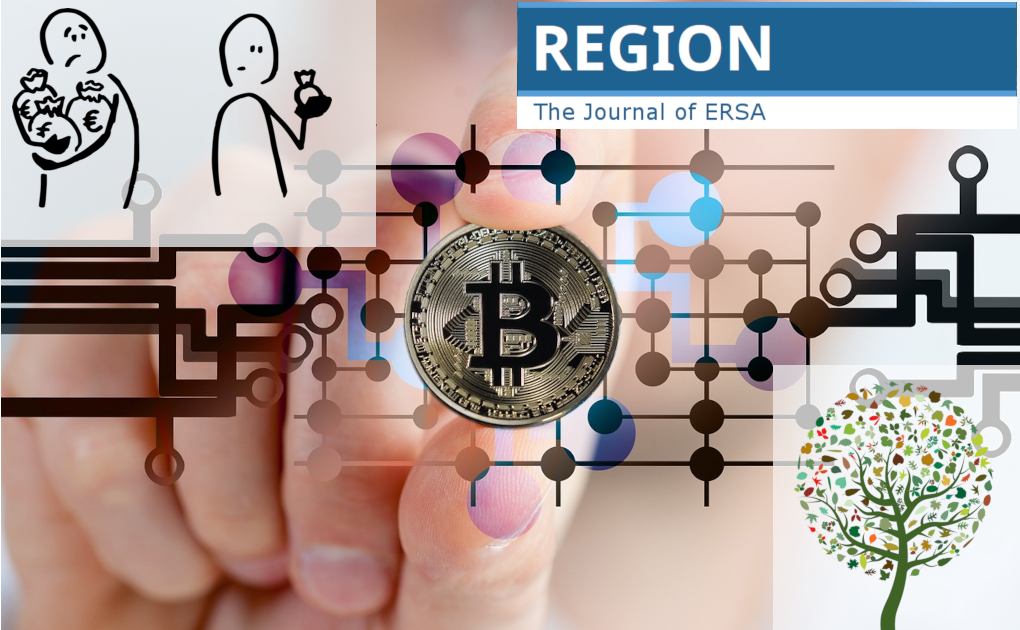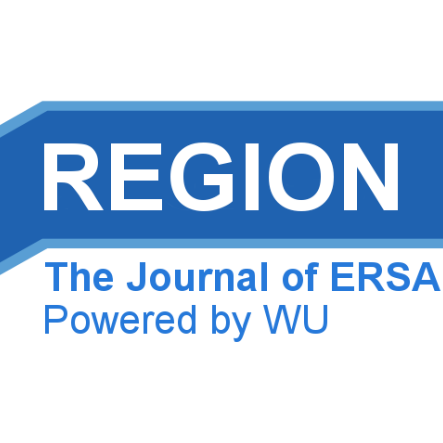The Rise of Bitcoin, Economic Inequality and the Ecology
DOI:
https://doi.org/10.18335/region.v10i3.468Abstract
What do we know about the interrelations between economic inequality, ecology and the increased use of Bitcoin? The aim of the paper was to empirically test the relationship between economic and ecological effects related to the increase in Bitcoin’s network hashrate in a selection of countries that have the highest influx of crypto-mining. To test these three types of relationships, I collected a dataset concerning Bitcoin indicators, economic indicators and ecological indicators that were obtained from multiple trustworthy sources: OECD, World Bank, Fred Data, World Inequality Database (WID). Handling the data challenges, I used this unique panel dataset to explore the relationship between Bitcoin’s hashrate and two types of outcomes: (i) economic outcomes (such as the GDP which as we know relates to inequalities through the Kuznets curve) or direct measures of inequality (such as, income inequality (GINI) and the share of people with top 1% of income and 1% of wealth), and (ii) ecological outcomes (such as carbon emissions, carbon footprint and electronic waste). I found that the Bitcoin currency associates with certain redistribution of wealth, but the accumulation of crypto-currency-related wealth itself remains still concentrated in the wealth of the top 1%. Also, there is evidence for certain nonlinearities in the relationships with the ecological degradation, echoing the concept of the Kuznets curve.

Downloads
Published
How to Cite
Issue
Section
License
Copyright (c) 2023 Gal Benshushan

This work is licensed under a Creative Commons Attribution 4.0 International License.
REGION is an open journal, and uses the standard Creative Commons license: Copyright We want authors to retain the maximum control over their work consistent with the first goal. For this reason, authors who publish in REGION will release their articles under the Creative Commons Attribution license. This license allows anyone to copy and distribute the article provided that appropriate attribution is given to REGION and the authors. For details of the rights authors grant users of their work, see the "human-readable summary" of the license, with a link to the full license. (Note that "you" refers to a user, not an author, in the summary.) Upon submission, the authors agree that the following three items are true: 1) The manuscript named above: a) represents valid work and neither it nor any other that I have written with substantially similar content has been published before in any form except as a preprint, b) is not concurrently submitted to another publication, and c) does not infringe anyone’s copyright. The Author(s) holds ERSA, WU, REGION, and the Editors of REGION harmless against all copyright claims. d) I have, or a coauthor has, had sufficient access to the data to verify the manuscript’s scientific integrity. 2) If asked, I will provide or fully cooperate in providing the data on which the manuscript is based so the editors or their assignees can examine it (where possible) 3) For papers with more than one author, I as the submitter have the permission of the coauthors to submit this work, and all authors agree that the corresponding author will be the main correspondent with the editorial office, and review the edited manuscript and proof. If there is only one author, I will be the corresponding author and agree to handle these responsibilities.




